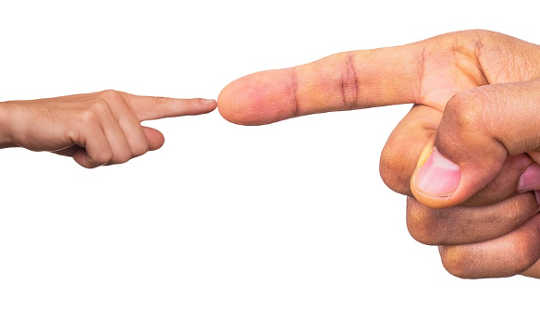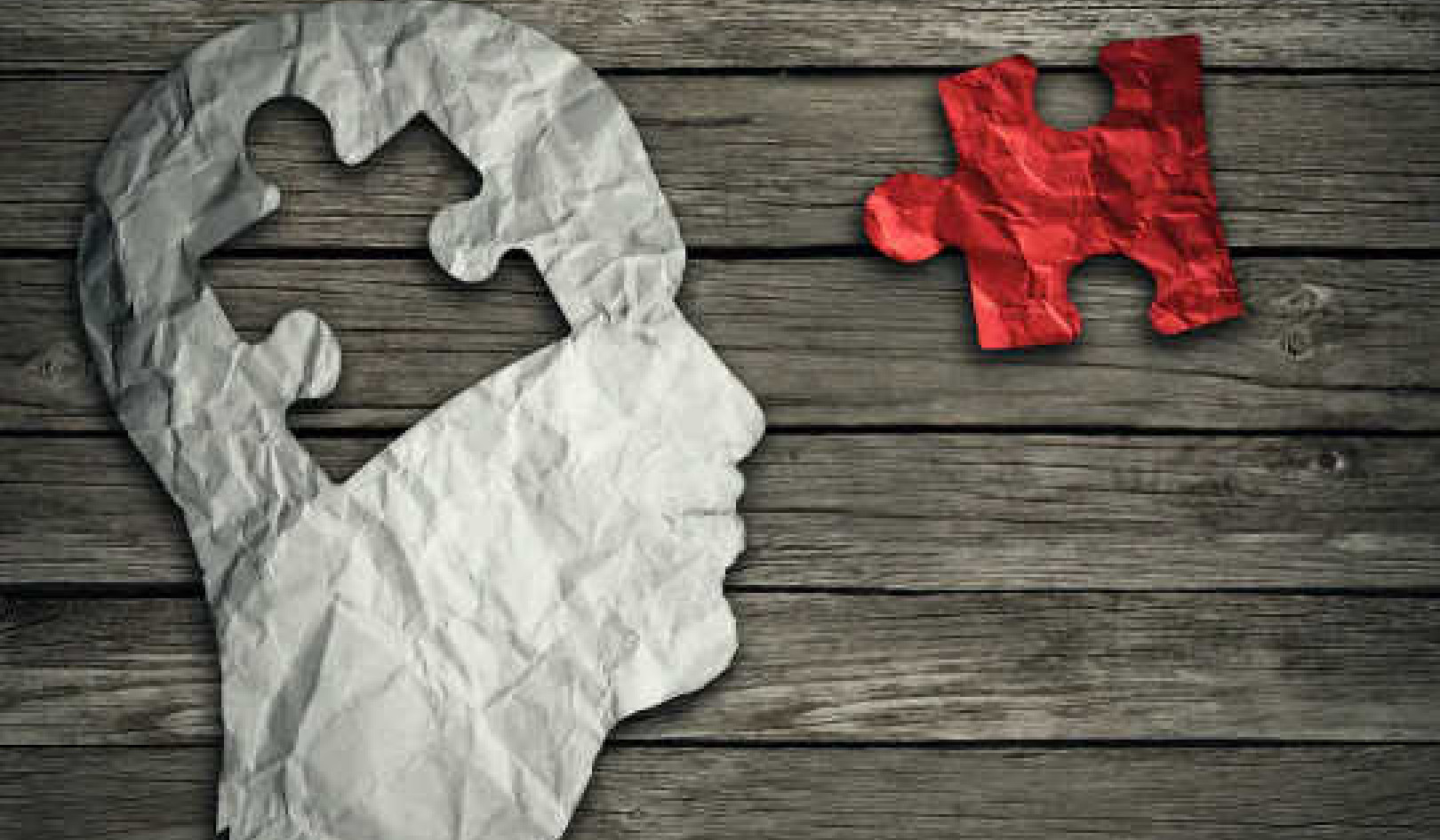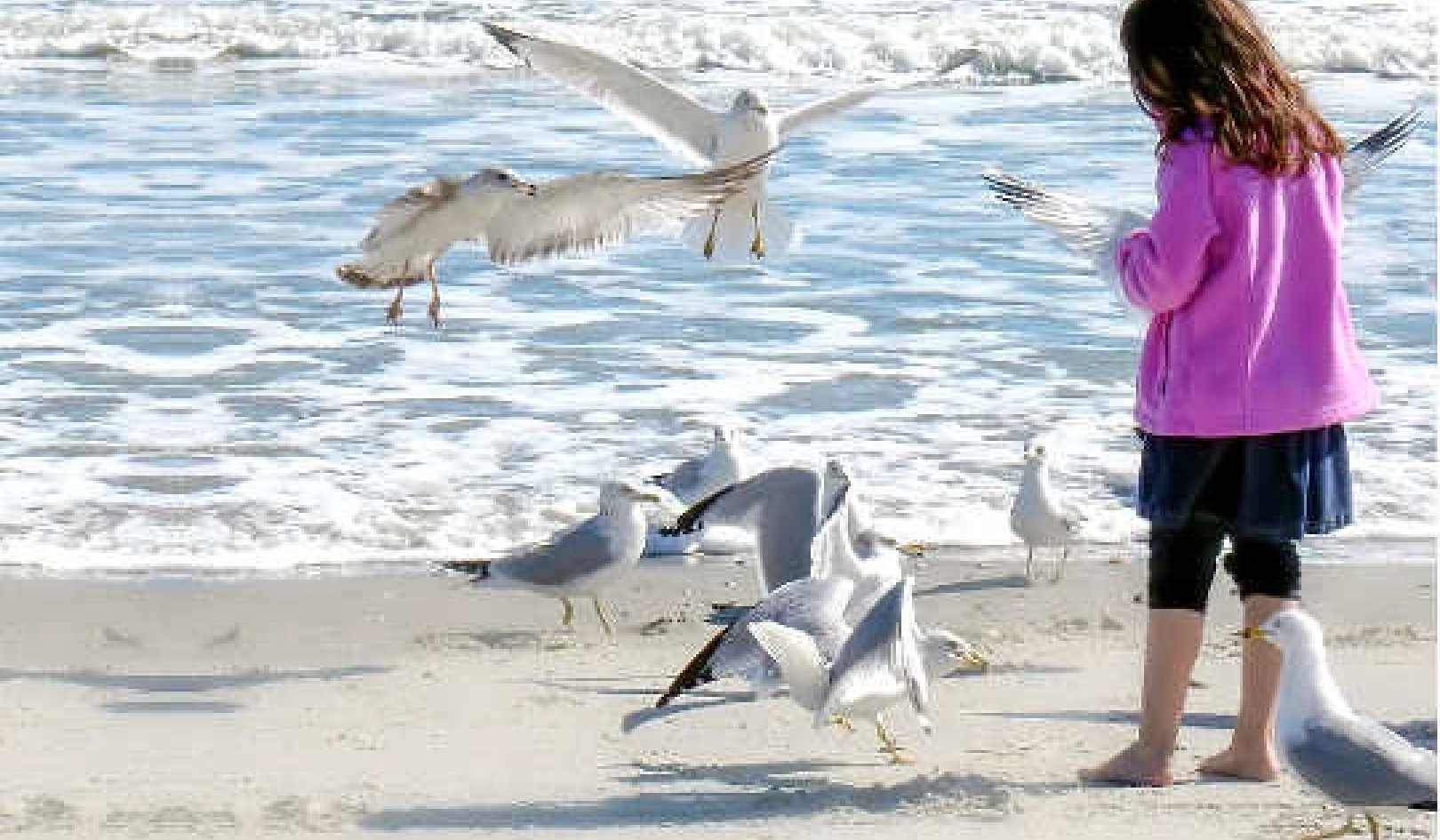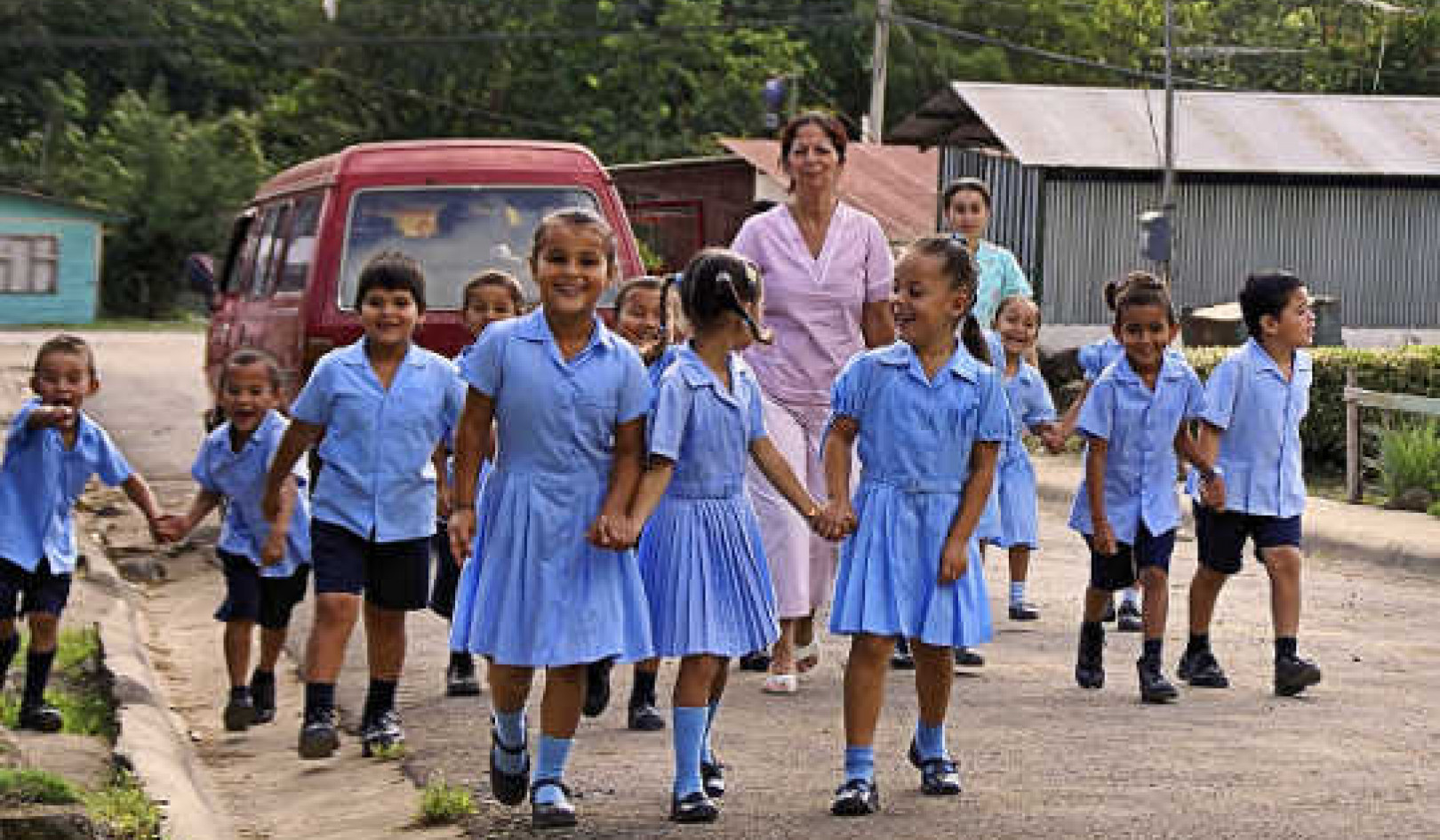
Image by Gerd Altmann
Over thirty years ago, I spent a few days with a renegade Sufi teacher in San Francisco. He described his notion of reincarnation, which I think is an interesting metaphorical analogy to how morphic resonance and non-locality imply that we're all constantly changing the world.
When we die, he said, our consciousness dissolves into what he called "the cosmic soup." All our thoughts, dreams, fears, experiences, and everything -- it all goes into the soup-pot, forming "a huge cosmic goulash, with everybody mixed together with everybody else." When a new baby is born, he said, "the cosmic cook" would pick up his ladle, reach into the cosmic soup-pot, and draw out enough of the soup to fill a human body/soul. This was poured into the new human.
It was an interesting concept, and I frankly have no strong opinion one way or another on its validity. I particularly like, however, the meaning he drew from it. "Because we all come from the same soup," he said, "we all have an obligation to make the soup happier, lighter, better tasting. Every thought we think and every action we take will eventually become the soup, and so be poured into one of our descendants. So our actions, our thoughts, our words -- even the most seemingly insignificant -- are important."
Looking at Einstein's, Bohr's, and Sheldrake's work, however, the question arises: Why wait until we die to add to the soup?
In fact, all the available evidence, from physics to psychology to common sense, tells us that our actions now, today, this moment as you read this book [The Last Hours of Ancient Sunlight], are influencing everything and everybody in creation.
Practice Small Acts of Anonymous Mercy
So where do we begin? In the Sermon on the Mount, Jesus pointed out that when we do "good works," we should do them without other people knowing that we did them. This is a difficult task: you have to continually keep an eye out for such opportunities.
Many people, looking at the enormity of all the problems facing the world, feel depressed, overwhelmed, and apathetic. They often give up.
But there is great spiritual and cultural power in performing small acts of mercy. They echo farther than most people realize, and begin a "morphic resonance" process of putting out into the air -- in a way that becomes culturally contagious -- the millions of small steps which must be taken worldwide to save our planet and our species.
We've seen this over and over, in the way fads spread, jokes travel around the world, the ways that consciousness is shared. On some level, we are all connected. When you save the life of another living being -- even a worm or a weed -- you are putting into the air the saving of lives. Small acts of mercy are among the most transformational spiritual activities a person can engage in, which is probably why Jesus and those teachers and prophets before him repeatedly put such emphasis on them.
We Each Have Four Tasks To Do Each Day
A Cree Native American storyteller and teacher told me:
"According to my tradition, from the beginning of creation, every morning, when the sun comes up, we are each given four tasks by our Creator for that day.
First, I must learn at least one meaningful thing today.
Second, I must teach at least one meaningful thing to another person.
Third, I must do something for some other person, and it will be best if that person does not even realize that I have done something for them.
And, fourth, I must treat all living things with respect.
This spreads these things throughout the world."
Good Deeds: For People As Well As Animals
In most of the world's Salem Children's Villages (communities for abused children around the world, first started by Gottfried Muller in 1957) there are stables with horses for horseback riding. I'd known about the horses in Stadtsteinach, Salem's German headquarters, for years: I had seen them perform dressage, had fed them, had walked to their stable and given them apples every evening with Gottfried Muller, my mentor, after dinner in the Salem guest house. What I didn't know at first was where the horses came from.
Over time the story came out, since Herr Muller doesn't often talk about the "good deeds" he does. He'd been in a train station and a train came through carrying horses from Czechoslovakia for the sausage factories of Germany. Seeing the horses, he inquired if it was possible to "save" any of them. The sausage company agreed to sell him a few, and those horses became the original horse population at Salem.
I'd often wondered why the Salem horses seemed to exert such a powerful attraction to both the children at Salem and visitors. Now I believe it may have to do with Gottfried Muller's quiet action in saving their lives.
Performing Small Acts of Mercy with Compassion
In October of 1997, I was in Stadtsteinach with Herr Muller over breakfast. A staunch "independent Christian" (he will join no organized religion) but fond of Christian and Jewish metaphors, he said,
"You know, in the balance scale of good and evil, there is much power and weight on the side of pain and torment and evil in the world. The story of Job tells how many different powers evil has, to create wars, to make pain, to afflict people, even to create what look like miracles. But there is one ability which Satan does not have. It is an ability which only we have. And, because he does not have this ability, even when we use it in very small ways, it is a great weight for good on the balance scale of the world."
"And what is this ability?" I said.
"Baumhertzig," he said. It is a German word which means small acts of mercy, performed with compassion.
"And, as Jesus said in the Sermon on the Mount about the widow who gave a penny, it is often the smallest, most anonymous acts which create the loudest thunder in the spiritual world."
Your Actions, Words, Thoughts Have a Powerful Effect
 Your actions, words, and even your thoughts have a powerful spiritual and real-world effect, whether others know about them or not. We are each like miniature transmitters, putting out into the air whatever we're about at the moment. This is why monasteries and retreat centers and the Salem communities around the world are so important: they're spiritual beacons, and they radiate out into the non-locality, the morphic field of the real world, the spiritual light that they're producing.
Your actions, words, and even your thoughts have a powerful spiritual and real-world effect, whether others know about them or not. We are each like miniature transmitters, putting out into the air whatever we're about at the moment. This is why monasteries and retreat centers and the Salem communities around the world are so important: they're spiritual beacons, and they radiate out into the non-locality, the morphic field of the real world, the spiritual light that they're producing.
No matter how overwhelming the problems of the world may seem, you do have an effect, even if nobody ever knows what you've done. For example, prayer has been demonstrated in double-blind, scientifically-controlled experiments run at Harvard University to speed healing, even when the people praying and the people healing don't know each other, have never met, and are located in different parts of the world.
Science is proving the existence of something it once thought disproved: the living nature of the universe and the interconnectedness of all things. That in stepping back from the intrusions and distractions of our corporate-driven culture, and in reaching out to the divinity both within ourselves and within nature, we can find a power and purpose and deep meaning to life. From this place, from this new vantage-point, we can see the essential insanity of the wetiko dominator lifestyle, and when enough people figure this out, we will turn around on the destructive road humanity is now following.
(Wetiko is a word that Native Americans use to designate an evil person who never worries about the well-being of others.)
How Many People Does It Take?
How many people does it take? A recent flyer I received from an organization that simply calls itself "Only Love Prevails" claims the number is a mere 80,000. They're suggesting that people should respond to any negative event -- personally or worldwide -- by mentally chanting, "Only love prevails." When I asked Victor Grey, author of Web Without A Weaver and The Laser of Intent and a member of the organization, where they came up with that number, he wrote me:
"Physicists tell us that according to the laws of wave mechanics, the intensity of (any kind of) waves that are in phase with each other is the square of the sum of the waves. In other words, two waves added together are four times as intense as one wave, ten waves are one hundred times as intense, etc. Since thought is an energy, and all energy occurs as waves, we believe that 80,000 people all thinking the same thing together are as powerful, in terms of creating the reality that we all share, as the 6,400,000,000 people (80,000 times 80,000) inhabiting the planet around the turn of the century, in their random chaotic thought. Therefore, 80,000 people all believing only in love will be enough to change the planetary reality."
Could it be? Studies done by the Transcendental Meditation folks have demonstrated repeatedly that when a certain threshold of meditators is reached in a city, the city's crime rates suddenly drop. (Seven percent is the figure most often cited, although some groups claim as little as one percent.)
Whatever the number, there is a synergistic effect in human interactions. The more people who think or believe a certain way, the more will find it easy to think or believe that way. The more acts of mercy performed, the more people will be inclined to act mercifully. The more people turn to searching for peace and divinity, the more peace and divinity will be found.
Reprinted with permission of the publisher, Mythical Books.
©1998 (Revised Updated edition 2004 by Broadway)
Article Source
The Last Hours of Ancient Sunlight: The Fate of the World and What We Can Do Before It's Too Late
by Thom Hartmann.
 While everything appears to be collapsing around us -- ecodamage, genetic engineering, virulent diseases, the end of cheap oil, water shortages, global famine, wars -- we can still do something about it and create a world that will work for us and for our children’s children. The inspiration for Leonardo DiCaprio’s web movie Global Warning, The Last Hours of Ancient Sunlight details what is happening to our planet, the reasons for our culture’s blind behavior, and how we can fix the problem.
While everything appears to be collapsing around us -- ecodamage, genetic engineering, virulent diseases, the end of cheap oil, water shortages, global famine, wars -- we can still do something about it and create a world that will work for us and for our children’s children. The inspiration for Leonardo DiCaprio’s web movie Global Warning, The Last Hours of Ancient Sunlight details what is happening to our planet, the reasons for our culture’s blind behavior, and how we can fix the problem.
Info/Order this book (revised and updated edition/different cover).
More books by this Author
About the Author
 Thom Hartmann's books have been written about in Time magazine and he has been on numerous national and international radio and TV shows, including NPR's All Things Considered, CNN, and BBC radio. He has been on the front page of The Wall Street journal twice, has spoken to over 100,000 people on four continents over the past two decades, and one of his books was selected for inclusion in the permanent collection of the Smithsonian Institute. A best-selling and award-winning author, he is also an occasional wood-splitter living near Montpelier, Vermont. Visit his website at www.ThomHartmann.com.
Thom Hartmann's books have been written about in Time magazine and he has been on numerous national and international radio and TV shows, including NPR's All Things Considered, CNN, and BBC radio. He has been on the front page of The Wall Street journal twice, has spoken to over 100,000 people on four continents over the past two decades, and one of his books was selected for inclusion in the permanent collection of the Smithsonian Institute. A best-selling and award-winning author, he is also an occasional wood-splitter living near Montpelier, Vermont. Visit his website at www.ThomHartmann.com.
The Small Number Of Activists It Takes To Change The World May Surprise You (Thom Hartmann w/ Ralph Nader)
{vembed Y=2BZbS1ZOq-s}




























